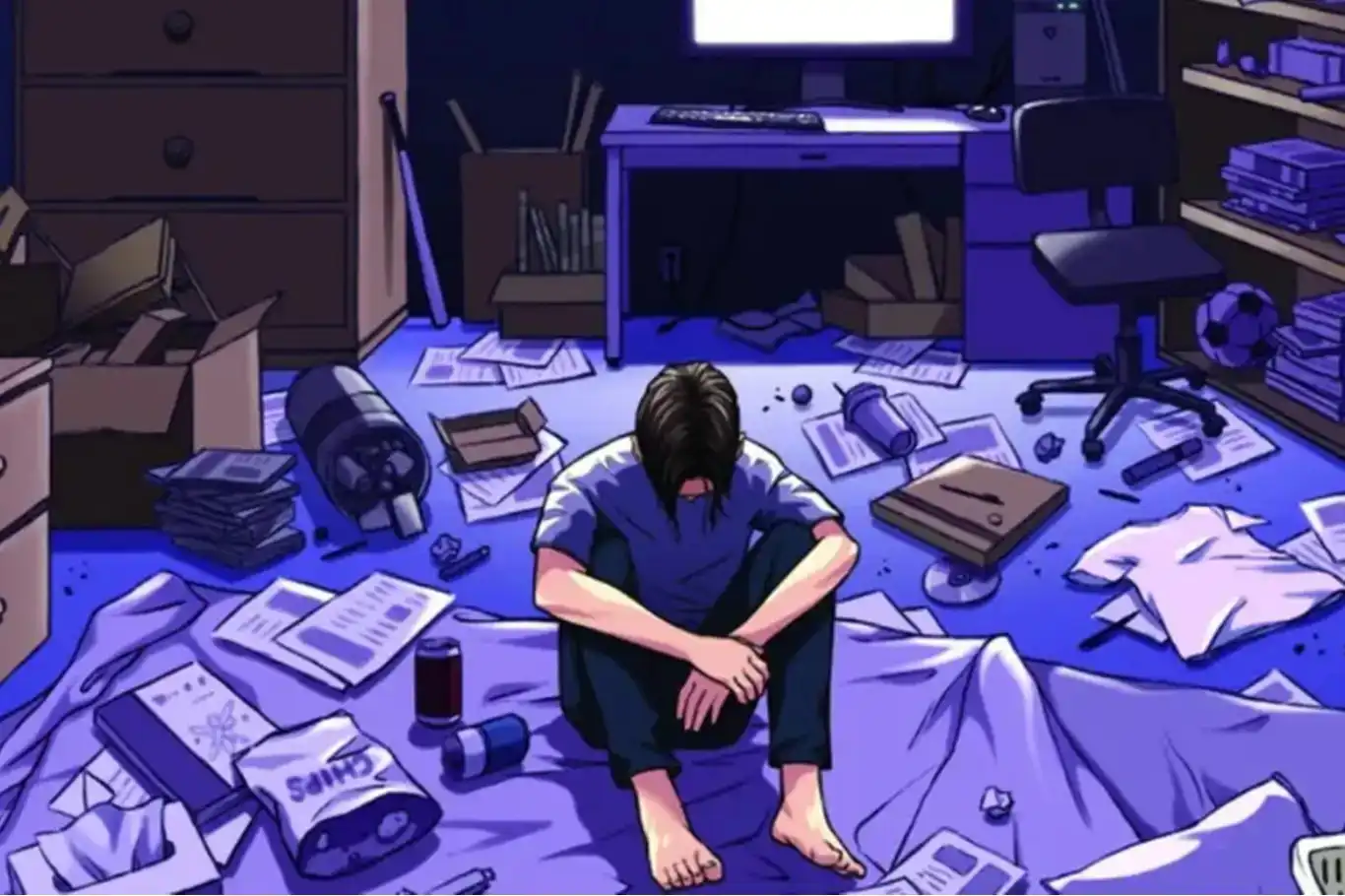Global surge in youth isolation: The rise of the “home youth” generation


A growing number of young people across the globe are retreating from social, academic, and professional life, choosing instead to isolate themselves at home as a way to cope with anxiety, economic uncertainty, and the pressures of modern society, experts warn.
Known as the “home youth” phenomenon, this trend is gaining traction in Türkiye, as well as in parts of Asia, Europe, and the Middle East, sparking concerns about its long-term psychological and social consequences.
Clinical Psychologist Cumali Aydın, in an interview with ILKHA News, described the phenomenon as a response to a complex mix of psychological and social stressors, rather than a simple lifestyle choice. “Many young people perceive the outside world as a source of anxiety, failure, or inadequacy,” Aydın explained. “Home becomes a ‘safe haven,’ but over time, this refuge can turn into a psychological trap.”
The “home youth” trend echoes Japan’s well-known hikikomori phenomenon, where young adults withdraw from society and live in extreme isolation. Similar patterns are now emerging globally, driven by rapid technological advancements, social media addiction, and the normalization of remote lifestyles since the COVID-19 pandemic.
Aydın highlighted three primary factors fueling this withdrawal:
-Pandemic-era isolation, which made staying indoors socially acceptable;
-Economic instability and unemployment, which breed feelings of helplessness;
-Social pressure and perfectionism, which prompt young people to avoid the risk of failure.
“For many, the outside world no longer symbolizes opportunity—it reflects their sense of inadequacy,” Aydın said. “Isolation becomes a defense mechanism against disappointment and social comparison.”
Psychologically, the phenomenon is often rooted in anxiety disorders, depression, and low self-esteem. “Young people with social anxiety view public interactions as threatening,” Aydın noted. “For some, avoiding engagement altogether feels safer than facing potential failure.” While digital platforms, such as gaming or social media, offer temporary relief and a sense of accomplishment, prolonged isolation can impair neural networks critical for empathy and cooperation, potentially hindering future social and professional integration.
Experts caution that labeling these young people as “lazy” or “unmotivated” risks deepening their sense of shame and worsening the issue. Instead, Aydın advocates for empathy and gradual reintegration. “Being a ‘home youth’ is not a permanent condition,” he emphasized. “With proper support, understanding, and opportunities for reconnection, these individuals can reintegrate into society.”
The rise of the “home youth” generation serves as a global call to action, urging societies to reconsider how success, connection, and belonging are defined in an increasingly digital and demanding world. Mental health experts stress the importance of compassionate, proactive measures to address this growing social issue before it leaves lasting impacts on future generations. (ILKHA)
LEGAL WARNING: All rights of the published news, photos and videos are reserved by İlke Haber Ajansı Basın Yayın San. Trade A.Ş. Under no circumstances can all or part of the news, photos and videos be used without a written contract or subscription.
Germany’s pharmaceutical sector has grown alarmingly dependent on China for the supply of essential drug ingredients, raising concerns about supply chain resilience and potential risks to national healthcare, according to a new report released by the Pro Generika e.V. association.
The UK’s National Health Service (NHS) is set to pilot an AI-driven “one-day diagnostics” service for prostate cancer that could revolutionize early detection and dramatically cut waiting times for thousands of men each year.
The health situation in the Gaza Strip has reached a catastrophic level, with more than 70,000 hepatitis cases reported across the besieged enclave, according to health authorities.